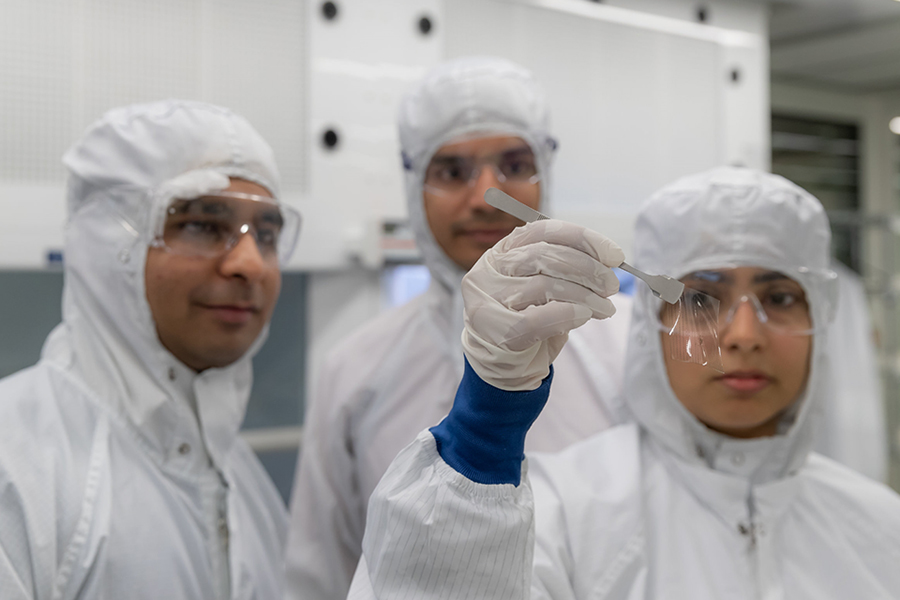We use cookies to give you a better experience on our website. Learn more about how we use cookies and how you can select your preferences.
CRC Projects – Stretchable sensor technology helping health care workers

Dr Sumeet Walia, Professor Sharath Sriram and Professor Madhu Bhaskaran from RMIT University. Professor Madhu Bhaskaran is holding a flexible sensor.
Sleeptite aims to improve the health, sleep and wellbeing of Australians through innovation and development of technologically advanced bedding products
The last few years the company has been focusing heavily on the aged care industry and how technology can help the sector prepare for the massive influx of elderly that will need care in the not-so-distant future.
The company has developed a continuous, non-invasive aged care resident monitoring system that will help detect and prevent night time falls. Stretchable proximity sensor technology, developed by RMIT University, will be re-purposed and embedded in bedding material to help provide health care workers and nurses with data and insight on the user’s movements as well as their state of health and sleep.
In 2018, Sleeptite partnered up with researchers from the Functional Materials & Microsystems group from RMIT University’s Micro Nano Research Facility as well as bedding manufacturer Sleepeezee Bedding Australia. Together the cross functional team received a $1.7 million CRC-P grant. The total cost of their project will be $5.3 million and will run up until June 2021.
The Sleeptite CRC-P is a collaborative project between bedding industry experts, nano-technology researchers, data architects and bedding manufacturers who together hope to create a product for local and global markets.
In collaboration with its Program Partners, Sleeptite’s sensor technology has the potential to greatly improve the lives of older Australians in residential aged care and home care.
The innovation will also positively affect health care workers and nurses.
As the system is designed with the workforce in mind, the true aim is to help carers prioritise their time, obtain key biometric health data whilst reducing the risk of night time falls.
Lead Researcher of the project, Professor Madhu Bhaskaran, is thrilled to have her breakthrough technology adapted and used to better the lives of the elderly.
When you start developing these technologies you always hope that one day it will leave the lab and be put into a real-world environment and I couldn’t be more excited about the impact this technology will have.
The project also includes a vast advance manufacturing plan led by the manufacturing arm of the project, Sleepeezee Australia. The bedding manufacturing company is based in Victoria and will help take the technology out of the lab and adapt it for mass production.
CRC-P grants support short term industry-led collaborations to develop important new technologies, products and services that deliver tangible outcomes.
-
Visit the Sleeptite website
www.sleeptite.com.au